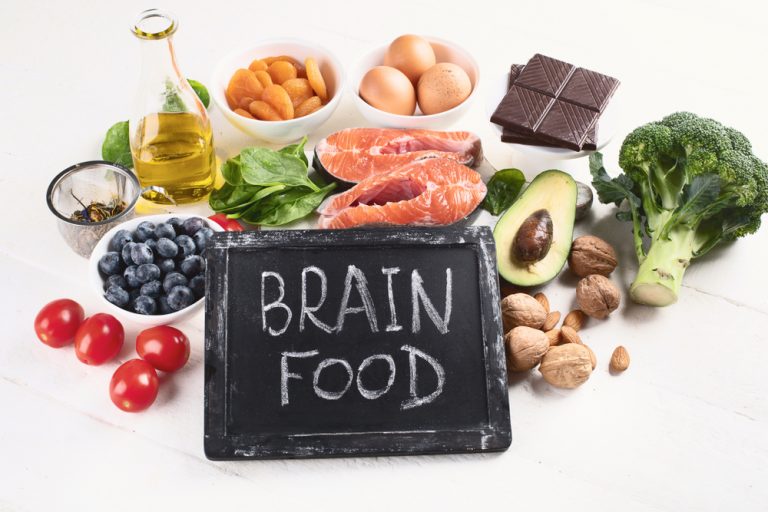Memory weakens with age but it doesn’t have to be that way. It is worth exercising, and the diet should include products that, due to the nutrients they contain, are natural boosters for the brain.
Brain needs
The brain constantly receives and processes millions of information, which consumes almost a quarter of the energy supplied to the entire body. It uses almost half of the glucose circulating in the blood, but it’s not enough for its proper health. To function properly - think, associate facts and to actually remember things it needs a lot of nutrients.
To provide them, the daily diet should be as varied as possible. However, there are products that should be eaten regularly, especially when memory begins to fail, because the nutrients contained in them can significantly improve it.
Food for memory
Sea fish
Sea fishes are rich source of vitamin B12 necessary for the production of the myelin sheath surrounding nerve cells and improving the conduction of impulses. They also contain essential fatty acids (EFA) important for mental development.
Avocado
A rich source of B vitamins, especially choline (vitamin B4) and niacin (B3, also known as PP). These vitamins are responsible, among others for the efficient functioning of the nervous system, and the deficiency of niacin causes, among others memory impairment, problems with concentration and association.
American blueberry
They contain a lot of among others in flavonoids, thanks to which the number of nerve connections in the brain is increased, which easily translates into better memory. When eaten in large quantities, it slows down the aging process of nerve cells.
Legumes
Similarly to avocados, they contain a lot of B vitamins. Therefore, it is worth including green beans, soybeans, broad beans, lentils and chickpeas in the menu.
Wheat sprouts
Is a valuable source of lecithin, needed for the production of neurotransmitters, including acetylcholine.
Egg yolks
They contain lecithin, they are also a source of zinc, the deficiency of which may interfere with memory processes and hinder concentration.
Nuts and seeds
This is one of the sources of iron, the deficiency of which significantly impairs memory, association and learning abilities, as well as concentration. They are also rich in omega-3 and omega-6 fatty acids, as well as B vitamins and vitamin E. It is worth eating hazelnuts and walnuts, almonds, pumpkin seeds and sunflower seeds as often as possible.
Buckwheat groats
A valuable source of magnesium, necessary for the production of enzymes interacting with vitamins B1 and B6. This element, along with calcium, helps in the conduction of neuromuscular impulses.
Tomatoes
They are rich in potassium, which improves oxygenation of the brain and the work of the nervous system, they also contain choline, corresponding to for the proper construction of cell membranes and the transmission of nerve impulses between neurons.
Bananas
Include potassium and magnesium - one medium-sized fruit contains almost as much magnesium as a handful of nuts.
Wholemeal flour products
Whole grain bread, dark pasta and brown rice are very good sources of complex carbohydrates that provide the brain with energy. They also have a low glycaemic index, thanks to which they gradually increase blood glucose levels and maintain it for a long time, unlike sweets or white bread, which contain simple sugars. And they quickly but briefly raise the level of glucose, which causes, among others, problems with concentration and worsens memory.
Wheat bra
Is a valuable source of phosphorus, an element necessary for transmitting nerve impulses in the brain.






